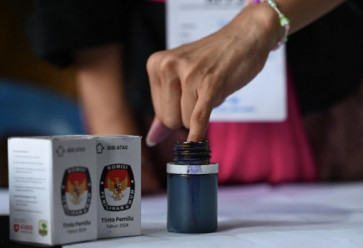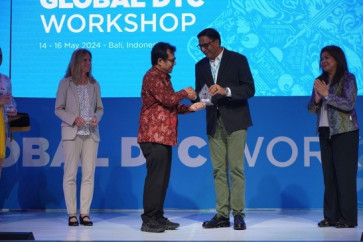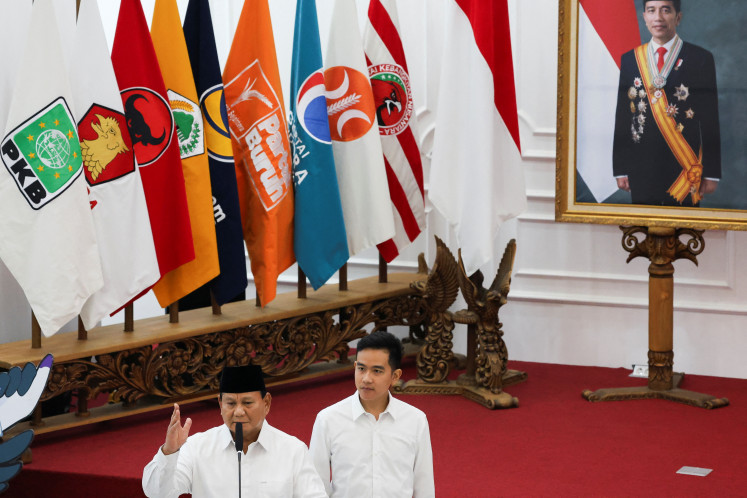Panasonic grappling with criticism to LGBT policy shift
Panasonic, the first major Japanese company to start recognizing same sex partnerships in its ranks, has gotten both praise and harshly negative responses to the new policy.
Change Size
 A man walks by a Panasonic showroom in Tokyo, Feb. 4, 2014 (AP/Shizuo Kambayashi)
A man walks by a Panasonic showroom in Tokyo, Feb. 4, 2014 (AP/Shizuo Kambayashi)
Yuri Kageyama
Associated Press/Tokyo
Panasonic, the first major Japanese company to start recognizing same sex partnerships in its ranks, has gotten both praise and harshly negative responses to the new policy.
"I never felt this much how different a response can get by nation," Tetsuya Senmatsu, a human resources manager, told reporters Friday, while declining to specify the nations where the change was poorly received.
The policy was welcomed in the US and Europe, he said.
Panasonic Corp. has offices around the world, including the US, China, Europe, the Middle East and Africa.
The policy, which kicks off on April 1, recognizes same sex partnerships as the equivalent of marriage in Japan, where Panasonic Corp. is headquartered. Details of how the policy will be applied in each nation are still under consideration, he said.
Senmatsu said the main reason for the policy is that the company opposes all forms of discrimination. The possibility that it might be a plus for recruiting talent was not what drove the decision, he said.
The new policy could help when an employee in a same sex partnership gets moved to another city or nation on assignment, according to Senmatsu.
He said the company does not know how many employees might be affected by the new policy.
"In general, it's said that might be 7 percent of the population," he said.
In China, South Korea, the Philippines and much of the rest of Asia, "coming out of the closet" still has serious consequences, for individuals and also for family members who might become targets of abuse and ostracism. It's an act that takes courage in Asian cultures that value conformity, traditional family structures and harmony.
Panasonic has handled media queries on the same-sex marriage policy in a low key way, declining interview requests. The media opportunity with Senmatsu, which covered general personnel policies, was the first since the new policy was disclosed.
Among other changes, the company also will start encouraging employees to take more time off work, both paid, and unpaid for longer periods, to pursue studies and other interests outside work.
"We think our workers need to go outside the company and learn about the world," Senmatsu said.
Osaka-based Panasonic has had job cuts in recent years, but, for decades after the original company's founding by humanitarian Konosuke Matsushita in 1918, it had stuck to the practice of lifetime employment once prevalent in Japanese corporate culture.
Japanese companies tend to foster extreme loyalty; many workers keep long hours, sometimes dying from overwork; and "salarymen" tend to make their jobs the center of their lives.









